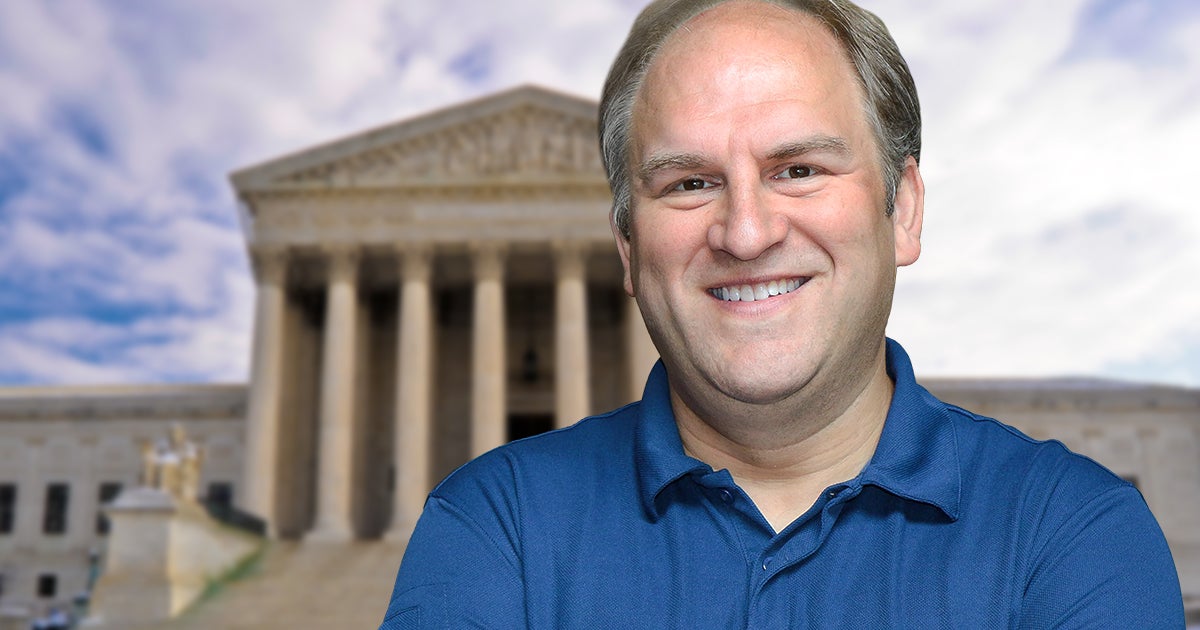
by Jorge Gomez • 5 min read
Big news: The U.S. Supreme Court announced it will hear our case involving former postal worker Gerald Groff, who was wrongly forced out of his job because of his religious beliefs.
Along with First Liberty, he is represented by Baker Botts LLP, the Church State Council and the Independence Law Center.
The U.S. Third Circuit Court of Appeals ruled that the U.S. Postal Service (USPS) is not required to grant a religious accommodation for an employee to observe the Sunday Sabbath.
Gerald’s sincerity is evidenced by his years of service on foreign mission fields. He has shared the Gospel in many different nations. And he strongly believes Sunday should be a day of rest. When back home in the U.S., working for the postal service seemed like a perfect fit—until they began Sunday deliveries. He even offered to work extra shifts during the week to make up for it, but the USPS ultimately refused to grant him a religious accommodation, which is a direct violation of federal civil rights law.
First Liberty’s President, CEO and Chief Counsel Kelly Shackelford explains:
“It is unlawful for employers to discriminate against employees on the basis of religion. It’s time for the Supreme Court to reexamine a decades-old case that favors corporations and the government over the religious rights of employees.”
Revisiting that decision before the nation’s highest court presents a major opportunity to protect religious freedom in the workplace. First Liberty is on the frontlines fighting this one—and multiple other federal cases—to stop employers from discriminating against religious workers.
The outcome of Gerald’s case could not only vindicate his rights under the law, it could also impact millions of other religious employees. A win for Gerald would be a win for all Americans, one that safeguards your rights—and the rights of your children and grandchildren—at work.
Watch the video below. Our Senior Counsel Stephanie Taub breaks down why it’s so significant that the Court has agreed to hear this case:
The 1964 Civil Rights Act prohibits discrimination against employees on the basis of religion. The law doesn’t just protect against harassment and discrimination, it also requires reasonable religious accommodations, if they can be granted without causing undue hardship on the employer, such as simply rearranging a schedule.
Our attorneys will also ask the Court to reexamine a poorly-reasoned case from the 1970s (TWA v. Hardison) that tips the balance in favor of corporations and the government over the religious rights of employees.
Americans Should NOT Be Forced to Choose Between Their Faith and Their Job
Whether it’s in the boardroom of corporate America or in many of our government agencies, there’s growing intolerance and hostility toward religion. People of faith are often put in the untenable position of choosing between their work or their beliefs.
It’s wrong and outrageous to force Americans to choose between their faith and their livelihood. They should not have to face that difficult choice, especially when their beliefs can easily be accommodated.
As our legal team prepares to go to court, we want to thank YOU for standing strong alongside Gerald. We could not have gotten this far without your support.
This is a tremendous opportunity, and First Liberty is really counting on your generous support to make the most of it. Make no mistake. Taking a case to the highest court in the country always demands a great deal of work and resources, and we need to replenish our arsenal to prepare for oral argument.
There’s a lot at stake with this case and your support can make a huge difference. Please donate today and help us secure a victory for Gerald—and for millions of Americans—at the Supreme Court.